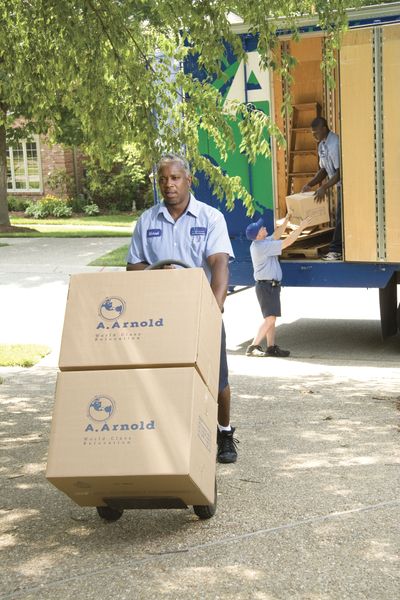Tips help moving go smoothly

Packing up your worldly possessions and moving them to a new home can be difficult even under the best of circumstances.
An estimated 40 million Americans move each year, with August being high season. One of the first decisions to make is whether to hire a moving company.
If you do, here are some suggestions for making the experience a smooth one:
Planning
When choosing a moving company, get written estimates from several carriers who have assessed, in person, everything you’ll be moving, says John Bisney, spokesman for the nonprofit American Moving and Storage Association.
Talk through the fine print and ask questions about anything you don’t fully understand. Surprisingly low bids warrant extra scrutiny.
The Web site ProtectYourMove.gov offers extensive information about your rights and the moving company’s responsibilities, especially for interstate moves. It’s important to discuss insuring your items, and how the company will handle any damage that occurs.
If you want the movers to pack your items, get detailed price quotes for labor and supplies. Be sure those charges are included in the written estimate.
Organizing
Eliminate clutter before the movers arrive: If you don’t need or want an item, don’t spend time and money moving it. Going room by room, select items you can sell, donate (get tax receipts) or share with friends. If your pantry is stocked, use most of that food before moving. And have coolers on hand to pack fridge or freezer items on moving day (or give them to neighbors).
To minimize stress on arrival, pack two weeks’ worth of everything you might need (food, dishes, paperwork, etc.) in a set of clearly labeled boxes. Keep these boxes separate from the rest of your goods.
Moving day
When the movers arrive, exchange cell phone numbers to stay in contact throughout the move. Have numbers handy for senior management at the moving company, in case a problem arises. Crew members’ experience may vary (some may be summer hires), so watch how they approach their work. If they are packing boxes, be sure they label clearly. Ask the head of the moving team to point out any items they consider damaged before loading them onto the truck, and photograph those damages.
Bring all cash, small valuables and very precious items in your own car, rather than giving them to movers. Have children pack a small box or backpack of favorite things that will stay with them (or under your supervision).
Also, keep cold drinks and snacks on hand for the movers. You’re not expected to offer refreshments, but they will appreciate the gesture.
Arriving and unpacking
On arrival, movers may ask for decisions on the fly if furniture doesn’t fit as planned. Have a rough idea – and some backup ideas – about where things should go.
Have the most crucial boxes – that two-week supply of important, daily-life items – placed together in one area, rather than scattered around the house.
You’ll need cash for tipping the moving staff once everything is unloaded. Tipping isn’t required, but it’s common. Rates vary around the country, and depend on the size and distance of the move.
Within days of arrival, unpack artwork and decorative items even if you won’t be displaying them yet; you need to see if anything is damaged to promptly pursue reimbursement from the mover.